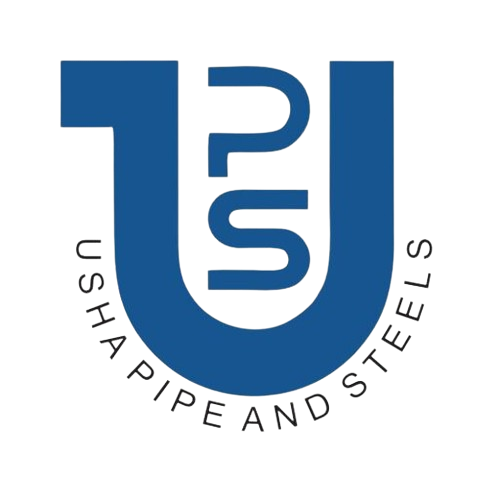Stainless steel
- Home
- Stainless steel
Product Description
Stainless steel is a type of steel alloy that contains a minimum of 10.5% chromium content by mass. The addition of chromium provides stainless steel with corrosion resistance, making it highly resistant to rust and staining.
Uses of Stainless Steel
- Kitchen Appliances & Cookware
- Food Processing and Storage
- Oil and Gas Industry
- Energy and Power Generation
- Goods and Electronics
Kitchen Appliances
Stainless steel is commonly used in the manufacturing of kitchen appliances and cookware, including sinks, countertops, refrigerators, dishwashers, ovens, pots, pans, and utensils.
Food Processing & Storage
Stainless steel is the preferred material for equipment and containers used in food processing, storage, and transportation.
Oil and Gas Industry
Stainless steel is used in the oil and gas industry for pipelines, storage tanks, valves, fittings, and offshore platforms.
Energy & Power Generation
Stainless steel is used in energy and power generation facilities for turbines, boilers, heat exchangers, piping, and pressure vessels.
Goods & Electronic
Stainless steel is used in a wide range of consumer goods and electronics, including appliances, electronics enclosures, watches, jewelry, cutlery, and tools. Its aesthetic appeal, durability, and low maintenance requirements make it a popular choice for consumer products.
Kitchen Appliances
Stainless steel is commonly used in the manufacturing of kitchen appliances and cookware, including sinks, countertops, refrigerators, dishwashers, ovens, pots, pans, and utensils.
Food Processing & Storage
Stainless steel is the preferred material for equipment and containers used in food processing, storage, and transportation.
Oil and Gas Industry
Stainless steel is used in the oil and gas industry for pipelines, storage tanks, valves, fittings, and offshore platforms.
Energy & Power Generation
Stainless steel is used in energy and power generation facilities for turbines, boilers, heat exchangers, piping, and pressure vessels.
Goods & Electronic
Stainless steel is used in a wide range of consumer goods and electronics, including appliances, electronics enclosures, watches, jewelry, cutlery, and tools. Its aesthetic appeal, durability, and low maintenance requirements make it a popular choice for consumer products.
Kitchen Appliances
Stainless steel is commonly used in the manufacturing of kitchen appliances and cookware, including sinks, countertops, refrigerators, dishwashers, ovens, pots, pans, and utensils.
Food Processing & Storage
Stainless steel is the preferred material for equipment and containers used in food processing, storage, and transportation.
Oil and Gas Industry
Stainless steel is used in the oil and gas industry for pipelines, storage tanks, valves, fittings, and offshore platforms.
Energy & Power Generation
Stainless steel is used in energy and power generation facilities for turbines, boilers, heat exchangers, piping, and pressure vessels.
Goods & Electronic
Stainless steel is used in a wide range of consumer goods and electronics, including appliances, electronics enclosures, watches, jewelry, cutlery, and tools. Its aesthetic appeal, durability, and low maintenance requirements make it a popular choice for consumer products.
Benefits of Stainless Steel
Stainless steel offers numerous advantages across various industries and applications due to its unique properties and characteristics. Some of the key advantages of stainless steel include:
- Corrosion Resistance: One of the most significant advantages of stainless steel is its excellent resistance to corrosion. Stainless steel contains chromium, which forms a protective oxide layer on the surface of the material, preventing rust and corrosion in most environments.
- High Strength: Stainless steel is a strong and durable material that maintains its structural integrity even at high temperatures and under heavy loads. It offers high tensile strength, allowing it to withstand extreme pressure and mechanical stress without deforming or breaking.
- Hygienic Properties: Stainless steel is inherently hygienic and easy to clean, making it ideal for use in industries where cleanliness and sanitation are essential, such as food processing, pharmaceuticals, and healthcare.
- Aesthetic Appeal: Stainless steel has a sleek, modern appearance that complements various architectural and design styles. Its smooth, reflective surface and lustrous finish add a touch of elegance and sophistication to interior and exterior spaces, making it a popular choice for decorative applications in residential, commercial, and public buildings.
- Low Maintenance: Stainless steel requires minimal maintenance and upkeep compared to other materials. It is resistant to staining, scratching, and fading, and it does not require painting, coating, or sealing to maintain its appearance and performance.
- Temperature Resistance: Stainless steel exhibits excellent temperature resistance, retaining its strength and durability at both high and low temperatures. It can withstand extreme heat, making it suitable for use in applications such as industrial ovens, furnaces, and exhaust systems, as well as cryogenic environments where low temperatures are required.
- Recyclability: Stainless steel is a sustainable and environmentally friendly material that is 100% recyclable. It can be recycled repeatedly without losing its properties or quality, making it a valuable resource in the circular economy.
- Wide Range of Grades and Alloys: Stainless steel is available in a variety of grades and alloys with different compositions and properties to suit specific application requirements. Whether it’s austenitic, ferritic, martensitic, or duplex stainless steel, there is a grade suitable for virtually any application, offering designers and engineers flexibility and versatility in material selection.
Proudly deals in

